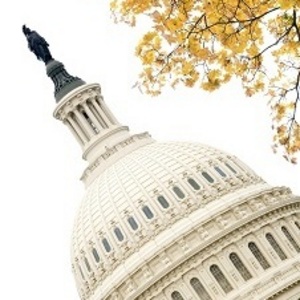House passes bill that would impact EPA rulemaking

November 20, 2014
BY Erin Krueger
On Nov. 19, the U.S. House of Representatives passed a bill that aims to prohibit the U.S. EPA from proposing regulations based on science that is not transparent or not reproducible. The bill, titled “The Secret Science Reform Act of 2014," or H.R. 4012, was introduced by Rep. David Schweikert, R-Ariz., in February. The measure passed by a vote of 237 to 190.
Since its introduction, 53 members of Congress signed on to cosponsor the legislation. The bill was addressed by the House Committee on Science, Space, and Technology and the Subcommittee on Environment.
According to the text of the bill, the EPA would be prevented from proposing, finalizing, or disseminating a covered action unless as scientific and technical information relied on to support such action is specifically identified and publicly available online in a manner that is sufficient for independent analysis and substantial reproduction of research results. The term covered action is defined as meaning a risk, exposure, or hazard assessment, critical document, standard, limitation, regulation, regulatory impact analysis or guidance. The term scientific and technical information is defined to include materials, data and associated protocols necessary to understand, assess and extend conclusions, along with computer codes and models involved in the creation and analysis of such information. Recorded factual materials and detailed descriptions of how to access and use such information also fall under the term.
Advertisement
A full copy of the bill is available on the Congress.gov website here. https://www.congress.gov/113/bills/hr4012/BILLS-113hr4012eh.pdf
Advertisement
Related Stories
The U.S. EPA on July 8 hosted virtual public hearing to gather input on the agency’s recently released proposed rule to set 2026 and 2027 RFS RVOs. Members of the biofuel industry were among those to offer testimony during the event.
The USDA’s Risk Management Agency is implementing multiple changes to the Camelina pilot insurance program for the 2026 and succeeding crop years. The changes will expand coverage options and provide greater flexibility for producers.
President Trump on July 4 signed the “One Big Beautiful Bill Act.” The legislation extends and updates the 45Z credit and revives a tax credit benefiting small biodiesel producers but repeals several other bioenergy-related tax incentives.
CARB on June 27 announced amendments to the state’s LCFS regulations will take effect beginning on July 1. The amended regulations were approved by the agency in November 2024, but implementation was delayed due to regulatory clarity issues.
SAF Magazine and the Commercial Aviation Alternative Fuels Initiative announced the preliminary agenda for the North American SAF Conference and Expo, being held Sept. 22-24 at the Minneapolis Convention Center in Minneapolis, Minnesota.
Upcoming Events










